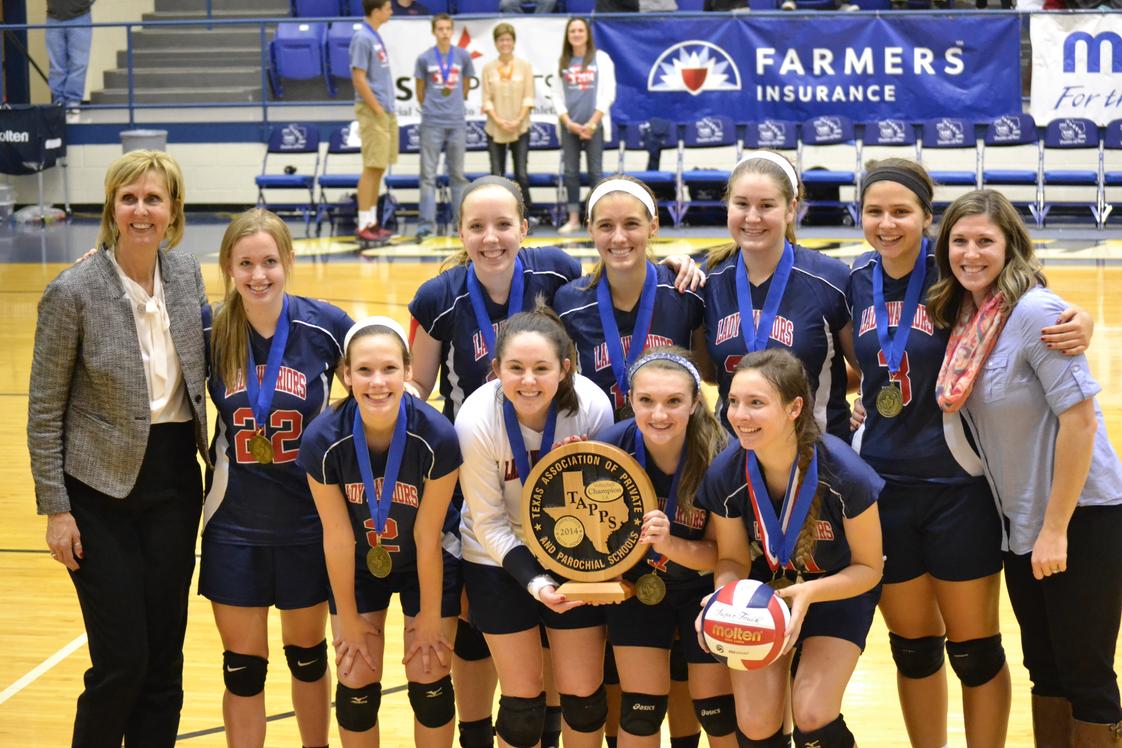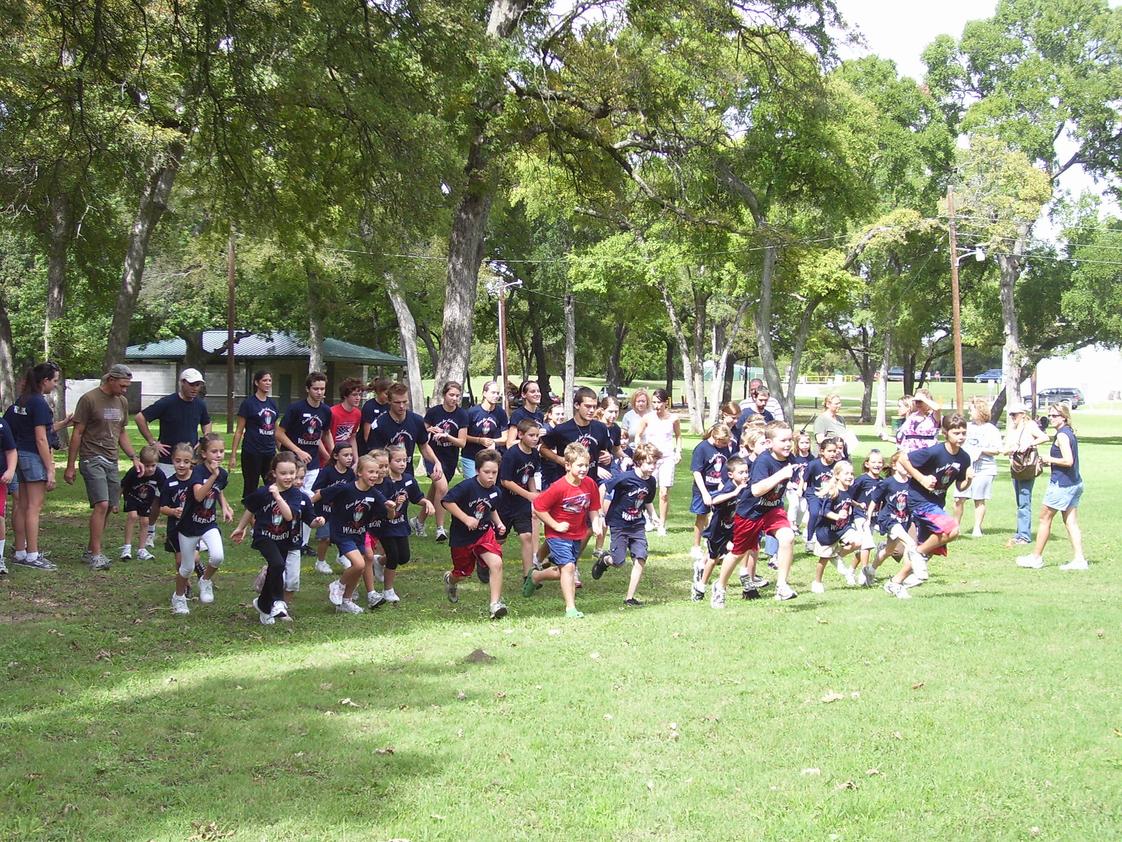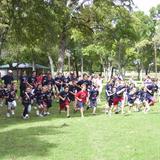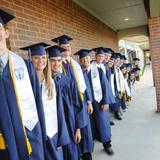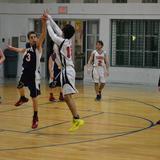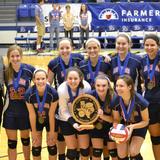Waxahachie Preparatory Academy is as unique from other schools as children are from each other.
WPA allows students more family time, a great sense of community, and flexibility in their school week. "The academics are appropriately challenging and are allowing our students to develop independent study skills with co-teaching supervision from the parents.".
Quick Stats (2025)
- School Type: School with Special Program Emphasis
- Grades: Kindergarten-12
- Enrollment: 143 students
- Acceptance rate: 98%
- Average class size: 12 students
- Application Deadline: Aug. 1 / Jan. 10 / rolling
- Source: Verified school update
School Overview
School Type
School Membership(s)School Assoc.
Religious Affiliation
Grades Offered
Grades Kindergarten-12
Year Founded
2001
Student Body
Total Students
143 students
Student Body Type
Co-ed
% Students of Color
11%
State avg.: 41%
Students by Grade
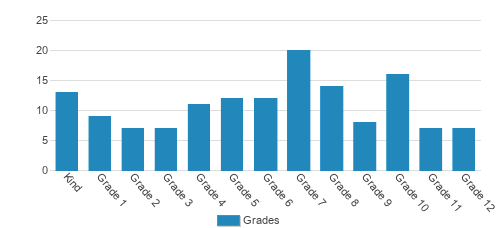
Academics and Faculty
Total Classroom Teachers
17 teachers
Student : Teacher Ratio
8:1
National avg.: 13:1
Average Class Size
12 students
Average SAT score
1090
(Out of 1600)
Average ACT score
22
(Out of 36)
Classroom Dress Code
Casual
khaki pants and WPA shirt
Tuition and Acceptance Rate
Admission Deadline
Aug. 1 / Jan. 10 / rolling
Tuition Notes
Students will enroll for for the individual classes they select for the entire school year. The payment plans are 12-month, 10-month, or 2-pay with a 5% discount. Classes for 2015-2016 are $160 per credit hour.
% on Financial Aid
5%
Average Financial Aid Grant
$1,000
Acceptance Rate
98%
National avg.: 85%
Admissions Director
Amy Morren
Admissions Associate
Amy Morren
Sports
Total Sports Offered
8 sports
Sports
Extracurriculars
Total ExtracurricularsTotal Extra-curric.
5 extracurriculars
ExtracurricularsExtra-curric.
Club or Organization:
Drama, Journalism/Yearbook Club, Math Pentathalon, National Honor Society, Student Government
Drama, Journalism/Yearbook Club, Math Pentathalon, National Honor Society, Student Government
School Notes
- Waxahachie Preparatory Academy is as unique from other schools as children are from each other. WPA allows students more family time, a great sense of community, and flexibility in their school week. "The academics are appropriately challenging and are allowing our students to develop independent study skills with co-teaching supervision from the parents."
- WPA is a NAUMS-Certified University-Model School, a member of the AdvancED accredited corporation NAUMS, and accredited by SACS CASI. WPA was founded on the concept of affording students the benefit of quality professional instruction on campus, while partnering with parents during satellite home instruction. Elementary students attend on-campus classes on Tuesday and Thursday, and are under parental instruction at home on Monday, Wednesday, and Friday. Secondary students attend classes on-campus on Monday, Wednesday, and Friday, and continue their studies at home with parental instruction on Tuesday and Thursday.
- The vision of University-Model Schools is to strengthen America's families and values by helping parents prepare college-worthy, character witnesses of Christ for the next generation. This distinctly-Christian educational model gives parents more time to be with their children than do traditional school settings, allowing greater opportunity for parents to impart the faith and values they hold precious. Students from public, private, and home schools alike are being attracted to the model because of its uniquely balanced approach to partnering with parents and preparing students. (NAUMS, University-Model Schools, and all related intellectual property are protected by trademark and used with permission.)
- Whether coming from public, private, or home schools, all families are admitted into University-Model schooling with the understanding that a high degree of parental mentoring will be expected. While it is true that all approaches to education are strengthened when parents are meaningfully involved, the University Model absolutely depends upon it. Without someone who will provide responsible parenting, the success of the student in this model is severely compromised.
- The University-Model approach is certainly not to be considered the only way or the "right" way for everyone. Every family faces different circumstances; therefore, each has a different set of needs. To believe that one educational alternative is right for every family is to believe that every situation is the same. This, of course, is not the case.
- What is University-Model Schooling University-Model Schooling (UMS) is a new educational alternative that, until now, has not been among the typical choices available to parents. Though off-campus parental roles are clearly defined and required in the model, UMS should not be equated with home schooling or home schooling cooperatives. Nor should UMS be understood as traditional classroom education that has simply reduced classroom time. Its significance lies in its ability to effectively utilize parents in partnership with highly qualified professional instructors to gain better academic results, especially among average students. This partnership is facilitated by using a university-type schedule, administrative system, and strong work ethic in age-appropriate ways for the elementary through high school grades. The result is an excellent, well-rounded education with less time in school, less cost for families, increased opportunities for positive parent-child interaction, and improved order and discipline in the classroom. It also results in the successful transition of students directly into college with minimal "culture shock" since they have already experienced a college-simulated work environment at the high school level.
- UMS is designed to bring together the best attributes of traditional schooling with the best attributes of home schooling and integrate them into one model. The immediate goal is quality, cost-effective, college-preparatory education accomplished in a way that gives parents more time for imparting the faith and values they hold precious. The ultimate goal is that of producing wholesome, competent men and women of character who make a positive difference in the next generation. It is also hoped that University-Model Schools, both public and private, can gain nationwide acceptance among parents and educators as a schooling alternative that is needed in every community. (Content from above 4 bullet points used with permission from the book Character Driven College Preparation by Dr. John William Turner, Jr. All content on this school overview is the trademarked property of NAUMS and is used with permission.) --------------------------------------------------------------------------------
Source: Verified school update
Frequently Asked Questions
What schools are Waxahachie Preparatory Academy often compared to?
Waxahachie Preparatory Academy is often viewed alongside schools like First Christian Day School, Ovilla Christian School by visitors of our site.
What is the acceptance rate of Waxahachie Preparatory Academy?
The acceptance rate of Waxahachie Preparatory Academy is 98%, which is higher than the national average of 84%.
What sports does Waxahachie Preparatory Academy offer?
Waxahachie Preparatory Academy offers 8 interscholastic sports: Basketball, Cross Country, Golf, Soccer, Swimming, Track and Field, Volleyball and Weightlifting.
When is the application deadline for Waxahachie Preparatory Academy?
The application deadline for Waxahachie Preparatory Academy is Aug. 1 / Jan. 10 / rolling (applications are due on Aug. 1 / Jan. 10 but additional applications are reviewed year-round as space permits ).
School Reviews
5 1/28/2022
The school is willing to sacrifice parents and children to Covid because it is threatened by scientific world views and infected by politics. You will not find any creative or free thinkers here. If that's what you want, well, you've found the right place.
5 7/24/2015
Our family has been with WPA for over 6 years. We have two students, a 6th grader and a 3rd grader. We have had the priviledge of seeing what a University Model can do for your student and how it really works. Our 6th grader has developed into a motivated, independent and driven young individual.
The fact that we are more involved in the teaching in the earlier years is very beneficial. We know that our student will not run the risk of being left behind. We get to concentrate on those areas that are more challenging for them and put adequate focus on those that they have mastered the days we are at home. The challenging academics put them at a higher level and keep them on their toes.
It is an amazing and challenging school that helps them to strive to work harder and challenges them to be responsible for their own work.
The high level of parental involvment allows parents to always know where their student is academically and how they are doing at all times.
Teachers are informative, they truly care and are always a phone call away on your days at home!
Finally, the Christian atmosphere is priceless and helps to encourage the priciples we instill in our children at home.
WE LOVE WPA!
5 7/24/2015
Our family has attended WPA since our son was in the 1st grade. Now that he is in the 4th grade, we see how the university model helps him become an independent learner. He loves coming to school and we more time as a family. I cannot think of a better place for him to go to school and love the time it has given our family. Also, the character and Christian emphasis has mirrored what our family sees as important in education.
Endorse Waxahachie Preparatory Academy. Endorsements should be a few sentences in length. Please include any comments on:
- Quality of academic programs, teachers, and facilities
- Availability of music, art, sports and other extracurricular activities
- Academic or athletic awards
Recent Articles

A Parent's Guide To Understanding High School Teaching Methods
This comprehensive guide helps parents navigate the various teaching methods used in today's high school classrooms. By understanding these approaches, you'll be better equipped to support your teen's learning journey, communicate effectively with teachers, and create a complementary learning environment at home.

February 08, 2025
Social Emotional Learning: Education's Hidden SymphonyA musician's perspective on Social Emotional Learning reveals how this educational framework orchestrates success through five essential emotional competencies.

January 24, 2025
A Roadmap For Starting A Private SchoolUse this roadmap as a set of talking points with your trusted mentors and professionals to start the private school of your dreams. You're not alone. Over the years, hundreds of folks like you have had the same dream. From Quintilian to Maria Montessori to Lucy Madeira Wing, visionary educators have established schools to teach according to their beliefs and methodologies.

